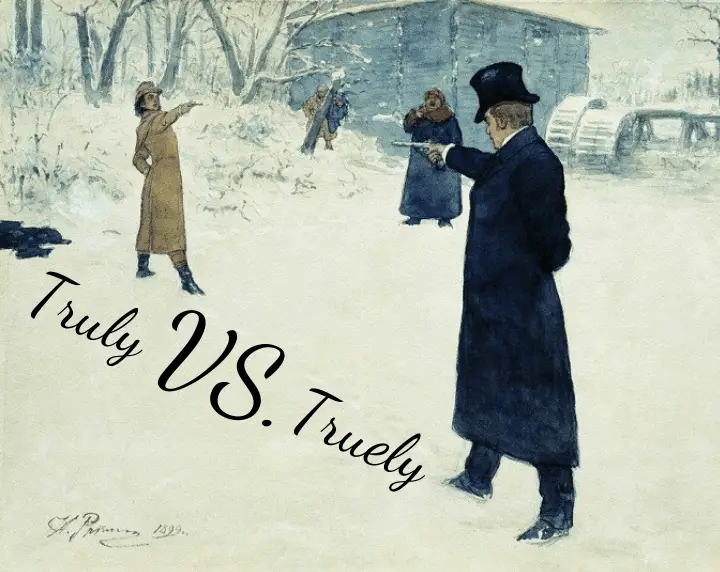
Let’s get straight to it:
- Truly – that’s the correct spelling of an adverb coming from the adjective “true”.
- Truely – bad luck, that’s currently not an alternative spelling, and it’s incorrect.
- Trully – you didn’t plan to use this one, right?
Why truly is the correct version?
Some adjectives like “nice” retain the “e” when you turn them into an adverb and add the “ly” suffix – “nicely”.Unfortunately for many confused English users, “true” doesn’t have this quality. So cut out the “e” at the end and use the correct version – “truly”. Similarly, you drop the “e” in “due” to create “duly” (not “duely”). Another similar exception to the rule is the word “whole” which transforms into “wholly” (not “wholely”). I make a lot of grammar mistakes, believe me. But now I check all my work with Grammarly which makes life a bit easier.
The long and intriguing evolution of truly
How “treowe” became “treowlice”, then turned into “truely” and ultimately settled down as “truly”? The first mentions of the word “treowe” meaning “faithful, trustworthy, honest, steady in adhering to promises, friends, etc.,” come from Old English (Mercian) starting before 1000 AD. In the Middle English era (1100 – 1500 AD) it was transformed into “truely” which was an accepted spelling, used even by Shakespeare. Julius Caesar (Act I, Scene I – First Folio – 1623) Cobbler – “Truely Sir, in respect of a fine Workman, I am but as you would say, a Cobler.” Much Ado About Nothing (Act I, Scene I – First Folio – 1623) Claudius – “Thou think’st I am in sport, I pray thee tell me truely how thou lik’st her.”
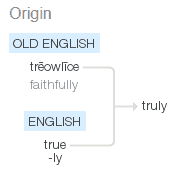
Since around the 1700s “truly” was used more widely in an effort to harmonize modern English orthography and the dictionary. Yet even in the 1800s, you could still see occasional instances of “truely”. English is truly a flexible language… The reason to go with “truly” is rather arbitrary and was popularized by the widely acclaimed Dictionary of the English Language (1755) compiled by Samuel Johnson.
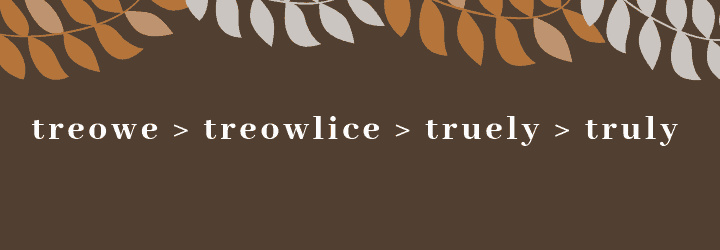
Examples of usage:
Truly delicious, truly simple – NY Times. A man she knows, B, who is truly among the most beautiful men ever to live, is in the hospital with an inoperable brain tumor. – The Paris Review. Volunteering can help to combat loneliness, but is it truly an illness? – The Guardian As you can see from Google’s Ngram data (coming from analyzing thousands of written materials over time), “truly” is the right spelling of the word:
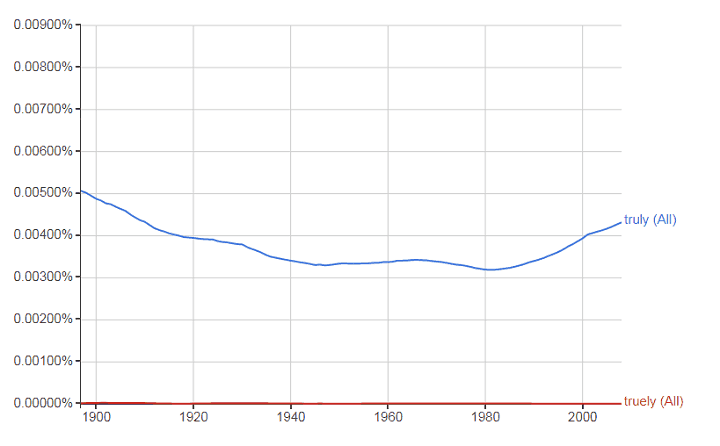
Here are different ways in which people misspell the word “truly” according to the Ginger Software database:
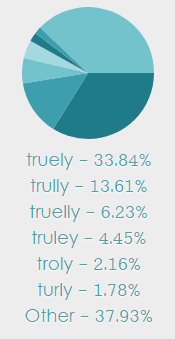
Truly, a formal definition and the meaning of the word:
In accordance with truth or fact or reality Example: “he was now truly a master of the game” or “she truly knows her grammar” By right Example: “baseball truly is the nation’s pastime” With sincerity, without pretense Example: “we are truly sorry for the inconvenience” In fact (used as an intensifier) Example: “a truly awful performance” Etymology: Coming from Old English treowlice, from treowe Trivia time: Truly is also an English and American surname (very rare: popularity rank in the U.S.: #41804)
Synonyms to truly:
Certainly, for certain, sure, no doubt, doubtless, to be sure, of course, as a matter of course, really, genuinely, sincerely.
Words similar to truly:
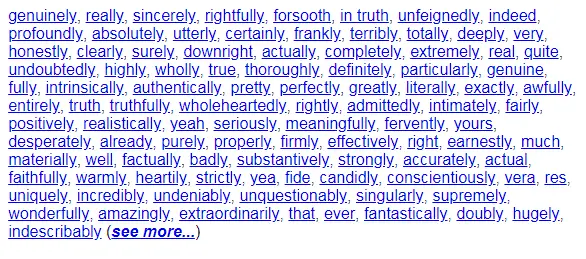
I hope you liked my explanation! Next up, you may want to explore a guide to humorous writing.
Hey there, welcome to my blog! I'm a full-time entrepreneur building two companies, a digital marketer, and a content creator with 10+ years of experience. I started RafalReyzer.com to provide you with great tools and strategies you can use to become a proficient digital marketer and achieve freedom through online creativity. My site is a one-stop shop for digital marketers, and content enthusiasts who want to be independent, earn more money, and create beautiful things. Explore my journey here, and don't forget to get in touch if you need help with digital marketing.

